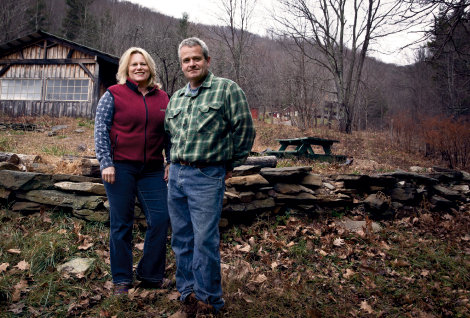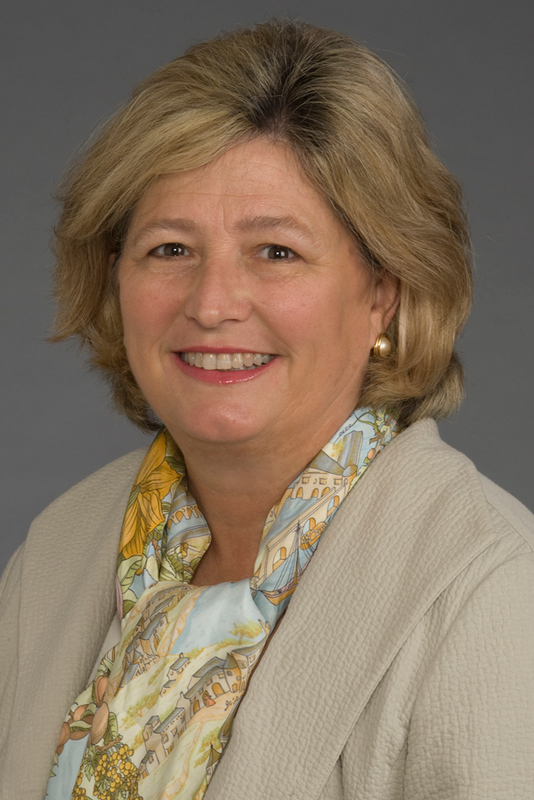Video: Alphaball Toss Activity
Got 60 seconds? Use this Orton-Gillingham approach activity for a multi-sensory learning experience that improves sequencing!
[youtube https://www.youtube.com/watch?v=eHfnzE0Hiqg]
Interview: Dr. Keeney, "Hero Award" Recipient & More
 Today’s interview is with inspiring individual Dr. William Keeney. Bill is the English Department Chair and has taught English at Delaware Valley Friends School for over a decade. Bill has a strong interest in educational research and pedagogy and was featured in the HBO documentary, Journey Into Dyslexia. He has published poetry, plays, and scholarly articles in American Literature, and presents on reading at national conferences such as the IDA. He was awarded the West Chester Public Library's Literacy Hero Award in 2007. Bill earned his B.A. at Columbia University and his M.A. and Ph.D. at Boston University, where he studied with Nobel Laureate Derek Walcott.
Camp Spring Creek: We were so moved by your classroom demeanor and educational philosophy in the HBO documentary, Journey Into Dyslexia. For our readers who have not seen the video, would you mind summarizing your points?
Today’s interview is with inspiring individual Dr. William Keeney. Bill is the English Department Chair and has taught English at Delaware Valley Friends School for over a decade. Bill has a strong interest in educational research and pedagogy and was featured in the HBO documentary, Journey Into Dyslexia. He has published poetry, plays, and scholarly articles in American Literature, and presents on reading at national conferences such as the IDA. He was awarded the West Chester Public Library's Literacy Hero Award in 2007. Bill earned his B.A. at Columbia University and his M.A. and Ph.D. at Boston University, where he studied with Nobel Laureate Derek Walcott.
Camp Spring Creek: We were so moved by your classroom demeanor and educational philosophy in the HBO documentary, Journey Into Dyslexia. For our readers who have not seen the video, would you mind summarizing your points?
Bill Kenney: Not being able to read is not your fault. One in five people have trouble learning to read if they are not taught well. This is because of a specific part of your brain that is different from the “norm” but is NOT the same as a difference in intelligence. You can have superior intelligence and still not be able to read without effort. If you didn’t get taught well, that is the fault of the educational system that didn’t get you the help you need and deserve. (If you are at Camp Spring Creek, count your blessings because they will be able to teach you to read the right way.) Even if you were taught to read, reading still might be a struggle because of how your brain processes writing into oral language. Because our current society is so dependent on text, you do have to read well enough to get by. Fortunately, there are some pretty good technological aids that you can use that will help you get through, such as audio books (particularly Learning Ally, especially for schoolwork) and text-to-speech tools. However, even if reading remains a struggle for you, you can still live a productive, successful, and happy life using your other gifts and talents.
CSC: We understand that, despite stereotypes, many children with dyslexia come to love reading and stories. When teaching required texts in a mandatory education setting, we’re curious about what you see on “the front lines” and how you address that. As an English teacher at a school specializing in dynamic learning experiences for students with learning differences, some might think that you have “the hardest subject” to teach. What kinds of resistance do you face in the classroom and how do you work with that?
BK: The key to getting “buy-in” is hope. It begins by “de-mystifying” the problem by explaining its origin in scientific terms and re-assuring the students that reading and intelligence are two very different things, and the fact that they might be struggling to learn to read is not their fault. However, I also emphasize that learning to read is a very core skill, and that with effort and skilled instruction, they can learn to read better and with less effort. I am honest that it will take time and hard work, and that they may never become readers who “enjoy” reading, but they can become readers for whom the value of reading and what reading brings into their lives can be a reality. Finally, I provide audio (with variable speed playback so that they can listen along faster, if they can process it) so that they can have access to books that are at grade level even if their reading is not there yet.
CSC: As a lover of literature and writer yourself, can you tell us about a peak learning experience you had growing up—something that involved realizing how much you loved stories or how you discovered the power of literature? Feel free to share some of your favorite book titles with us from childhood to present day!
BK: I was blessed with the ability to read easily from a young age, so I began reading everything from a young age, so I don’t know if my story is going to resonate with people who struggle to read, but I am glad to share it. I remember the first time I “fell through a book.” I was sitting in an armchair and suddenly was just effortlessly reading. My memory is that the book was called Ab the Caveman, although I have looked for it since and have never been able to locate a copy. In my youth, I devoured comic books, sports stories, science fiction, horror, etc.
Then, in my senior year of high school, I read Robert Penn Warren’s novel, All the King’s Men. I remember thinking: This is a book that was not written for me, it is not about a world I know anything about, but it is absolutely compelling, rich, and insightful—this is what literature is all about. In college I began to enjoy poetry such as Walt Whitman, Emily Dickinson, WB Yeats, TS Eliot, and Wallace Stevens.
Some of the things I have read most recently that I love to recommend are: Paul Harding’s Tinkers, Annie Proulx’s short stories, and Charles Frazer’s Cold Mountain. However, I don’t think what I read is necessarily what someone decades younger than I should read! For young adults, I think The Hunger Games is the best of these kind of series, I always recommend To Kill a Mockingbird and Catcher in the Rye for high school students, and many students in my school love The Alchemist and The Absolutely True Diary of a Part-time Indian.
But my final word would be: Find your own book recommenders. Read what your friends have read and liked. Read several books by the same author or in the same genre. Your teachers will probably introduce you to “classics” like The Great Gatsby, but on your own, explore. Read widely. It doesn’t matter nearly so much what you read as whether you read!
CSC: Camp Spring Creek feels strongly that the Orton-Gillingham approach can be beneficial to all types of learners, not just children with dyslexia or other learning differences. We also stand behind the belief that this approach can be integrated successfully into the public school and home learning environments, with proper training and information. For our parents or teachers with children at home, can you share a basic technique or skill that you teach in your English literature classroom? Perhaps something that could easily transfer into the home or public school learning environments such as a word game, a reading challenge, or some other exercise…whatever comes to mind.
BK: You are correct that good, systematic teaching is beneficial to everyone, particularly when it comes to the basic skill of reading. Research shows that there is only one pathway in the brain to efficient reading, and that everyone who learns to read builds those same neural networks—some just build them faster and with less effort, but the process is exactly the same. So, if we all teach all students in explicit, multi-sensory, structured and systematic ways, everyone will learn to read as quickly and as well as they possibly could! My motto is, this isn’t special education, it’s education by specialists—“It’s just good teaching.”
Since I teach in a high school and primarily with literature, I have two basic pieces of advice: If you still have difficulty reading, use audio as a support to help your speed, accuracy, fluency, and comprehension; and, for comprehension, re-read. This is what all readers do to improve their comprehension; it is just that “natural” or skilled readers can do this quickly and efficiently (as well as having the freed-up space in their minds to monitor their comprehension because the reading process has faded into automatic).
Video: Phonemic Awareness
Check out this instructional video with clips from our most recent Classroom Educator Course. This includes sample Orton-Gillingham exercises teachers or parents can easily incorporate into their classrooms or home study plans:
[youtube https://www.youtube.com/watch?v=Yc9B8pgj7wA]
A Tribute to Anna Gillingham
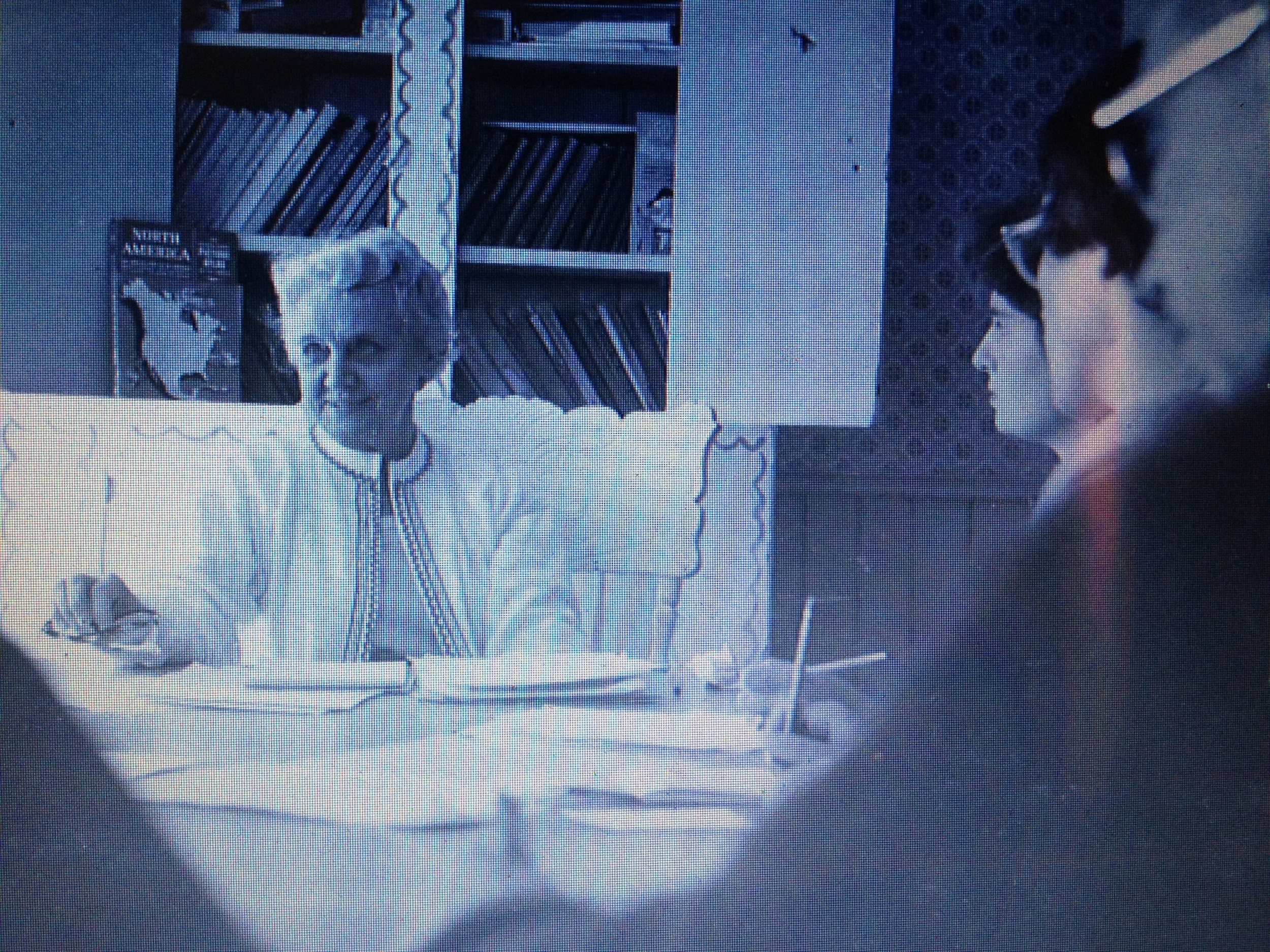 Today's blog post is a tribute written by Helene Dubrow about Anna Gillingham. Helene trained under Samuel Orton, Anna Gilingham, and Bessie Stillman and went on to found Camp Mansfield, the first camp for children with dyslexia, among other programs. Her grandson Van Westervelt was recently featured on our blog and assists us with staff training each summer. Thanks, Van, for sharing this very special document with us.
Today's blog post is a tribute written by Helene Dubrow about Anna Gillingham. Helene trained under Samuel Orton, Anna Gilingham, and Bessie Stillman and went on to found Camp Mansfield, the first camp for children with dyslexia, among other programs. Her grandson Van Westervelt was recently featured on our blog and assists us with staff training each summer. Thanks, Van, for sharing this very special document with us.
I first met Anna Gillingham when she came to Verona, New Jersey in October 1936 to give a series of three lectures to teachers. The first pertained to reading, the second to spelling, and the third topic was not announced. As we later found out, the final meeting related to handwriting and difficulties students experienced with written expression. All three meetings were stimulating and increased my interest in understanding specific language-learning difficulties.
For the previous three years I had been training individual elementary school children with some degree of S.L.D. under the direction of Dr. and Mrs. Samuel T. Orton. As a result of this experience, I was eager to learn more about programs to assist older students at junior and senior high school levels. Accordingly, I approached A. G. after the final session and asked where one could get additional training and knowledge about remediation for older dyslexic students. She was quick to respond, saying “Why don’t you come and work with me?” Anna was then a psychologist at Ethical Culture, Fieldstone School, New York City. By November 1936 arrangements were complete, and I traveled five days a week from Montclair, New Jersey to Fieldstone School, where I was scheduled to instruct individual students under A. G.’s supervision. This program was continued until June 1937 when Bessie Stillman and A. G. went to Punohu School, Honolulu.
My experience at Fieldstone was particularly important, for as a teacher A. G. was thorough and demanding. She was explicit in giving directions and took time to explain procedures as they related to individual students' needs. One cannot forget her ability to understand the learning problems and present a program for remediation. As almost no materials were available at that time, 1936-1937, Anna made her own drill cards, books, and word lists for reading and spelling. Before the Manual was developed, Florence Aiken’s book Word Mastery was of prime importance.
It was Anna who helped me to understand the specific handicaps related to dysgraphia. She increased my interest in handwriting and how it handicaps academic achievement. For some children who have serious difficulty with fine-motor functioning, she believed time spent trying to develop legible hand-writing was a waste of time. For those students she recommended learning to type. Under her direction, I taught typing to fourth and fifth grade students. Anna devised a clever scheme to teach the touch system. A frame was built over the keyboard. A bib was fastened about the child’s neck and attached to the frame. With this arrangement, children could not watch their fingers, and the system seemed preferable to covering the keys. With the latter there was a tendency to look at the hands but with the bib, this was eliminated. I believe this unique idea has not been put in practice.
During the year at Fieldstone School, I had frequent sessions with Bessie Stillman. These conferences at her apartment were scheduled after school hours and related to spelling. Such meetings with A. G. and Bessie Stillman were particularly helpful, for they were directed to the needs of older students.
At the end of the school year Anna and Bessie left for Punohu School, Honolulu. Upon their return they learned of the death of my husband August 1937. As Anna was acquainted with my family she showed special interest in our welfare and was most helpful with suggestions and frequent conferences. She followed my programs at public and independent schools with interest. She was most supportive and made trips to schools and centers to give talks to faculties. In this way she spread the word and improved understanding of specific language disability.
While I was on the staff at Phillips Academy, Andover, Massachusetts, Anna lectured there to members of the English Department. During this period 1943-1947, I learned about her programs for early identification of children with some degree of S. L. D. This interested me particularly, for I had spent over ten years trying to retrain bright, able students whose early language-learning programs were inappropriate and ineffective. Accordingly, when I accepted a position at Sidwell Friends School, Washington, D. C., 1948, it was with the understanding that a program for early identification of S. L. D. students supervised by A. G. would be initiated. It was agreed that Kindergarten children would be examined and those indicating the need for Orton-Gillingham approach would be selected and have special training in grade I through grade IV. During those years, Anna came six times each year to review data and train teachers to use phonetic-alphabetic approach for learning to read, spell and write. When Anna came to Washington she lived with me and visited the school each day. At night she reviewed the children’s folders which contained results of tests and teacher’s observations. This information she discussed in detail with me. From the data collected and consultations with teachers, decisions were made about appropriate methods to be used with individual children in grade I. The small number of students chosen for special training was mainstreamed. The classroom teacher was prepared to present phonetic alphabetic approach for learning to read, spell, and write. Similar programs were continued through the first four grades. The results surpassed our expectations and proved A. G.’s theory important. This was an experimental pioneering project which demonstrated A. G.’s belief that characteristics of S. L. D. could be identified at kindergarten level, and if taught using appropriate methods, frustrations and discouragement would be reduced. I was happy to participate in the experiment at Sidwell Friends School and the experience strengthened my interest in programs for early identification and prevention of severe consequences related to dyslexia. My enthusiasm for early identification of language-learning difficulties has never diminished.
When I joined Dr. Roswell Gallagher, 1953, at the Adolescent Unit, Children’s Medical Center, Boston, and trained tutors to instruct S. L. D. students, A. G. came frequently to lecture and confer with professional people interested in the “Cause.” She gave willingly of her time and energy. Though her sight was failing she continued and was steadfast in her desire to spread her message. This she did well.
A.G. was always interested in my Camp Mansfield project. This camp was established as a result of Dr. Samuel T. Orton’s urging. He sensed the need for summer programs to train children diagnosed S. L. D. and was eager to provide individual remedial instruction along with recreational activities. This plan was developed in a rural setting among the hills and mountains of Vermont. A. G. followed our program at Camp Mansfield. She visited on several occasions and loved to walk about the fields near the streams talking with campers and staff members. With her experience and knowledge she had much to offer. She gave freely of her time which benefitted all.
It was the occasion of her last summer when I visited her at the Methodist Home in Mt. Vernon, New York, that she mentioned while others were going off on vacation she had no place to go. It was then that I, along with a few Boston friends, arranged for a vacation at Camp Mansfield, Vermont. At that time Anna was without sight, but she was eager and happy to make the airplane trip to Burlington. There I met her and completed the journey to Camp. Because she was familiar with the setting and remembered how we were situated, she was delighted to find her way about and enjoy the country atmosphere. Campers and staff members were quick to assist and guide her when necessary. She attended staff meetings and made wise comments. Teachers were grateful for the opportunity to share her thoughts and wisdom. A. G. was pleased and thoroughly enjoyed her visit. When the time came for departure and return to New York, I found her fully dressed lying on the bed. As I entered, she spoke firmly and said. “Don’t think I’m tired, but when you can’t see, you have lots of time to think.” With this characteristic remark, we bade farewell. Her spirit and desire to assist children never dimmed. She labored unceasingly to promote the “Cause” in which she was so completely dedicated.
We who worked with her can never forget.
Susie Presents in Florida!
This week Susie is in Florida working with mentor and friend Susan Russell for an in-service training with the teachers at The Little Place and The Little Place Too, both private, academic-based preschools. Susan was Susie's second boss, so the two go way back. This press release was published via local media outlets in Wellington, FL and shares more about their relationship and the goals of Susie's trip. Free Dyslexia Info Session for Parents & Educators
Wellington, Florida – February 25, 2014 – Esteemed educator and dyslexia advocate Susie van der Vorst offers free info session for parents, educators, and administrators interested in early intervention, teaching methodologies, and other issues facing children with learning differences.
The Little Place Too, an academic-based private preschool in Wellington, will host an info session on dyslexia featuring Susie van der Vorst, well-known education advocate and co-founder of Camp Spring Creek. Susan Russell, owner of The Little Place Too, invited van der Vorst to the region after sending one of her school’s teachers to Camp Spring Creek’s 70-hour Associate Level Orton-Gillingham training at the camp in North Carolina.
“We’re just getting into the Orton-Gillingham approach at The Little Place,” says Russell. “I can already see a positive difference. It helps all of us understand how to help our children in the best ways possible.” The OG approach, as it is commonly called, is one of the most highly effective methods for teaching the structure of language using multisensory techniques. Trained tutors, such as Ms. Shay at The Little Place Too, engage students in learning activities that ask students to see, hear, and write a concept. Processing a single concept in many different ways allows all children, and especially children with learning differences such as dyslexia, to grasp skills they cannot learn using traditional methods.
At the info session, van der Vorst will touch on early intervention techniques that help parents and teachers determine whether or not their child has a learning difference as early as age four. She will also answer common questions, dispel myths about dyslexia, and discuss resources available nationwide. “Dyslexia doesn’t necessarily mean you read backwards, as people often think,” says van der Vorst. “Children with dyslexia have difficulty processing language but they are often very gifted in analytical reasoning and creativity, which is why a high percentage of people with dyslexia become corporate CEO’s, engineers, artists, entrepreneurs, surgeons, and architects.”
With support, people with dyslexia lead lives of accomplishment. This has been proven with recent brain research, in the classroom, and also at Camp Spring Creek, one of only three residential camps in the United States accredited by the Association of Orton-Gillingham Practitioners and Educators. “We often see students make two to three years worth of progress during a six to eight week session at camp,” says van der Vorst, who has nearly 30 years of teaching and tutoring experience. “Our approach is designed to target a child’s individual strengths and weaknesses and help them excel. But we also recognize the value of keeping kids active throughout the day. These kids can’t learn as well if they’re stuck behind a desk. The learning needs to be hands-on so that they can get multiple senses involved.”
Susan Russell and Susie van der Vorst have a history stretching back to 1987, when The Little Place Too first opened its doors. “I told Susie that she could start a kindergarten classroom at my school and do anything she wanted, as long as she could explain why,” recalls Russell. “She was just out of school, young, and very excited about teaching. I didn’t want to stifle that. She presented her plans to the parents and they could feel her enthusiasm, too. That’s exactly why she’s been so successful.” For van der Vorst’s part, the primary motivator in spreading the word about dyslexia is that she believes the right to read is a civic right. No child should be excluded because traditional teaching methods don’t teach some kids the ways they need to be taught.
The info session is free and open to the public. It will be held Tuesday, February 25 from 6:30-7:30pm at The Little Place Too, 2995 Greenbrier Boulevard in Wellington. For more information please call 561-790-0808.
Job Openings at Camp Spring Creek
We're in need of several Certified and Associate Level Orton-Gillingham tutors for the Camp Spring Creek 2014 season. We only have a few openings left, but if qualified applicants are interested in working at camp from June 10 to August 10, please send your resume to our general email inbox: info@campspringcreek.org. Applicants may also contact us at the office by calling 828-766-5032. OG Training with us in advance of employment is sometimes an option, so don't hesitate to inquire. We also have a few tutor positions for half the summer. Applicants to these positions that are not returning staff will need to attend staff training at the start of the summer. In general, we prefer individuals that have already been through training via the Academy of Orton-Gillingham Pracitioners & Educators, but we can provide practicum observations. For example, if an applicant is hired and works the entire 8 weeks, he or she can use up to 5 observations for their practicum. Please be in touch!
Camp Spring Creek Featured in WNC Magazine
We're so proud to be featured in last month's print and online issue of WNC Magazine. Please take a moment to enjoy this brief feature by clicking HERE and scrolling down to Steve and Susie's photo.
Interview: Henri Brown
This week, we're very excited to feature Henri Brown in our Inspiring People interview series. Henri Brown is the Director of the Augustine Literary Project/WS, a literacy project that trains and pairs volunteer tutors with low-income children and teens who struggle with literacy skills. She graduated from UVA undergrad and got her Master's from WFU. She lives in Winston-Salem with her husband, Royall Brown, and has two children. Read more about why she thinks "dyslexia" isn't the best word-label for our children, who she views more as "da Vinci Kids."
Camp Spring Creek: Please tell us briefly how you become involved with Augustine Project and what your role is there.
Henri Brown: Like many folks who get interested in Orton education, I had a child who had reading issues. As a family, we were fortunate to be able to afford a private tutor. As we gratefully paid our tutor, week after week, I kept thinking about those moms who loved their children as much as I did, but who could not afford a tutor. About that time, the Augustine Project in Winston-Salem held their first training. I signed on for their second training in 2002, and I've been here ever since. I started as a volunteer and founding Board member, served as Board Chair in 2006, and became Director of the Winston-Salem project in 2008.
CSC: Currently, Austine Project is serving 124 schools or after school programs. This must work out to be thousands of children! In what ways does Augustine Project serve those children: Through individual tutoring? In-class assistance? Group lessons? Help us "see" things in action from afar:
HB: In Winston-Salem, we serve over 100 children in over thirty schools and after school locations. Our tutors work one-to-one, and each tutor agrees to tutor twice weekly for approximately 45 minutes to an hour. As our tutors are volunteers, most take just one student, although several of our over 100 tutors have 2 or more students. Usually, our tutors go to school, remove the child from class, tutor, and then return the student to class. The schools have great confidence in our tutors. This is why the schools are willing to let us remove a child from class for tutoring twice weekly.
We are also seeding tutors in some after school locations. These are usually homework or feeding ministries. It is extremely valuable to have trained volunteers in these locations.When they encounter a child with a reading problem in one of their programs, hopefully someone there will know how to help.
CSC: If you could help dispel one myth or stereotype about children with dyslexia, what would it be and how would you address it?
HB: First, I'd change the word dyslexia. We've got to get rid of the 'dys' label for children with reading and/or language problems. Take any meaning of 'dys' you like--ill, bad, abnormal, diseased, faulty-- these children don't qualify. Personally, I'd rather call them "da Vinci Kids." This reflects much more of who they really are.
CSC: Please share an "ah-hah" moment that you have experienced as an educator or advocate in your years working with children with learning differences. HB: In the Augustine Project, we get lots and lots of "ah-ha" moments. As a tutor, I loved the recent moment when my teenage student wrote a list and then turned it into a good, solid paragraph--and she knew it. As Director, I love knowing the profound difference that our tutors make in the lives of the children they serve. Recently, our tutor Deb went to meet with the principal at the new school that her student was attending. Out of the school bus window she heard, "Ms. Deb, Ms. Deb, You found me! You found me!" Another student--one who used to say reading was his enemy--is now reading poetry and learning about birds. Another tutor is moving to his 3rd school this year, as he follows his student with unstable housing. I could go on and on.
CSC: What is one thing that you often hear parents say they "wish they had known" as they discover their child has dyslexia or a learning difference? How can other parents be more aware of this in their own children?
HB: I think most parents who discover they have a 'DaVinci Child'--and I was one of them--wish they had figured it out earlier. I knew my child was extraordinarily frustrated in school. I just didn't know why. To that end, the WS Augustine Project has just published a piece on early warning signs for reading difficulties in both English and Spanish. This piece, supported by the Women's Fund of Winston-Salem, focuses on early identification of reading problems in girls.
Camp Spring Creek Seeks Teachers for Free Training in WNC
 This press release was originally published by local newspapers in Mitchell and Yancey Counties.
Spruce Pine, North Carolina – December 8, 2013 – Camp Spring Creek Outreach Center, a non-profit organization in Mitchell County, received grant funding to train up to 10 teachers and assistants in the Classroom Educator Class.
This press release was originally published by local newspapers in Mitchell and Yancey Counties.
Spruce Pine, North Carolina – December 8, 2013 – Camp Spring Creek Outreach Center, a non-profit organization in Mitchell County, received grant funding to train up to 10 teachers and assistants in the Classroom Educator Class.
Camp Spring Creek was recently awarded a $20,000 People in Need grant funded through the Community Foundation of Western North Carolina, the Lipscomb Family Fund, the Fund for Mitchell County, and the Nelle Crowell Fletcher and G.L. Crowell Fund. These monies are specifically allocated to train up to 10 public school teachers or assistants who work with children during the literacy block.
“We’re so grateful to all the organizations that contributed to make this funding possible,” said Camp Spring Creek co-director Susie van der Vorst. “Now we’re ready to make it known that there are 10 spaces available. Thanks to the grant, the training is free. We’re hoping for 5 teachers from Yancey and 5 teachers from Mitchell, and we can work with individual schedules to offer the course during their free-time.”
The Classroom Educator Class is a 35-hour course based on the Orton-Gillingham approach to learning. Participants will learn the structure of English, primarily focusing on specific methodologies for differentiating instruction to meet individual students’ unique learning needs within small group or whole class instruction. The course will cover phonemic awareness, syllabication, and the spelling patterns of our language, among other concepts.
"Orton-Gillingham training was definitely that 'missing link' in my professional training!” said Tamara Houchard, 6-8th grade ELA teacher at Harris Middle School, who has completed numerous trainings through Camp Spring Creek. From her basic training, she says she “was able to understand the foundations of the English language and, more importantly, able to teach my students—at any level—how to read, understand, and comprehend in a systematic and logical way. No reading teacher could ask for more from a training!"
While the Classroom Educator Class is especially designed for K-3rd and Exceptional Child teachers, “we will take anyone interested,” said van der Vorst. “We would like school principals to contact us if they have teachers or assistants who are interested.” Following course completion, participants will receive 1 year of mentorship through conferences and in-class visits from van der Vorst, who is also the instructor.
The Orton-Gillingham philosophy, or OG, as it is commonly called, uses a language-based, multisensory approach to learning that relies on a student’s problem-solving and creative thinking skills to circumvent processing weaknesses. Although OG is most commonly used for children with dyslexia, the method has been successfully incorporated into learning environments for students of all styles and abilities. For information, call the Camp Spring Creek Outreach Center at 766-5032.
Video: Compound Words & Syllables
[youtube=http://www.youtube.com/watch?v=gerA1YmsM8w&w=560&h=315]
Video: Alphachips Activity
We've added a Category to our Camp Spring Creek blog called Resources (see right hand sidebar). Here, we'll be posting video clips of Susie in action during her training sessions, other informative videos that we want to share with you, and videos of our tutors and local educators doing what they do best. To kick things off, check out this Alphachips Activity video and stay tuned on our Facebook page later this winter, because we'll be giving away a set of Alphachips for you to use in your own classrooms or homes! Enjoy! [youtube=http://www.youtube.com/watch?v=MonH1kJeoMI&w=560&h=315]
Camp Spring Creek Heads to Pennsylvania
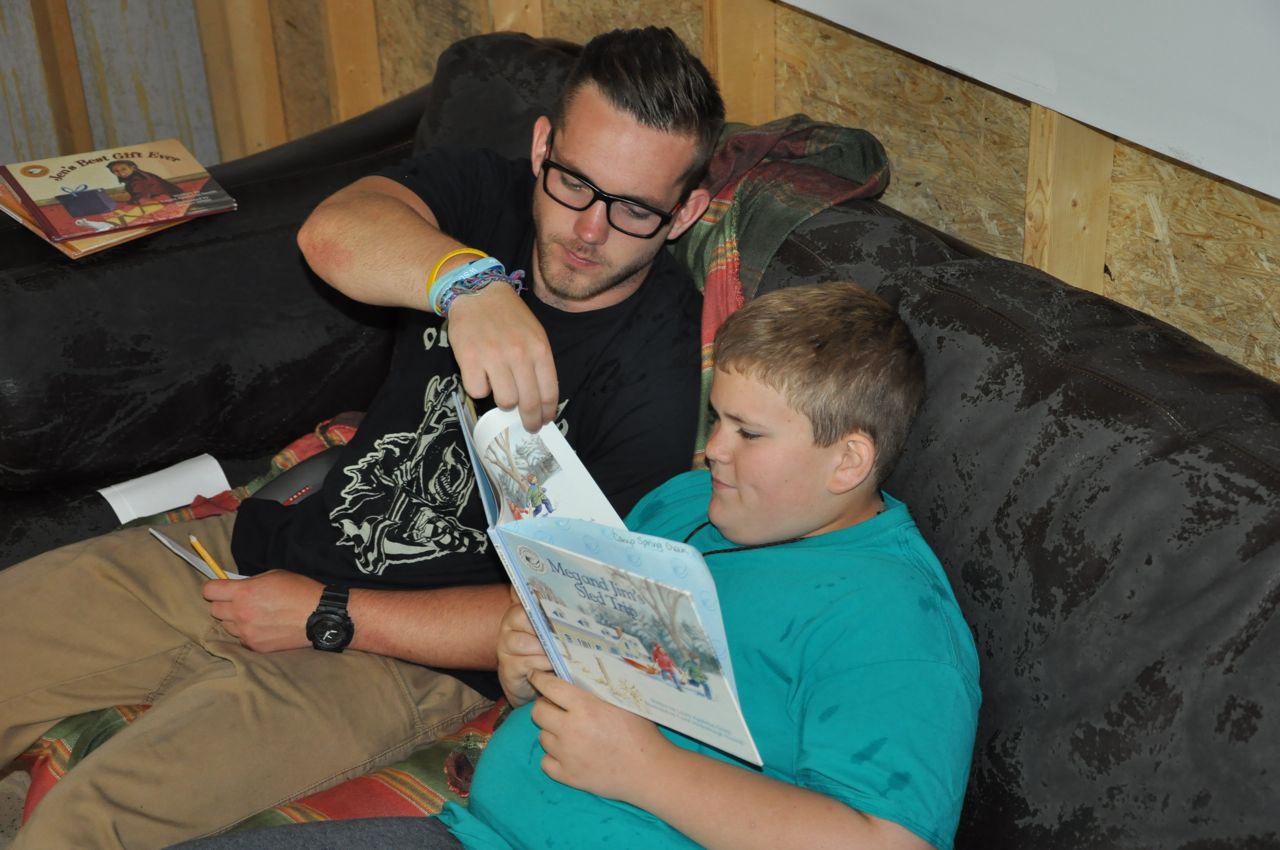 This press release was originally through published in Bucks County, PA area media outlets in anticipation of our 1/6/14 Camp Show in Buckingham, PA. Read below for info about hosting a camp show in your area, and also some choice quotes from Camp Spring Creek's very own Susie van der Vorst.
Buckingham, Pennsylvania – January 6, 2014 – Summer camp for children with dyslexia offers film and open house.
This press release was originally through published in Bucks County, PA area media outlets in anticipation of our 1/6/14 Camp Show in Buckingham, PA. Read below for info about hosting a camp show in your area, and also some choice quotes from Camp Spring Creek's very own Susie van der Vorst.
Buckingham, Pennsylvania – January 6, 2014 – Summer camp for children with dyslexia offers film and open house.
Camp Spring Creek, located in the Blue Ridge Mountains of North Carolina, is an academic and recreational camp supporting dyslexic children ages 6 to 14. Invited by a local Doyelstown family whose child attended the camp, co-founder and director Susie van der Vorst will screen “How Difficult Can This Be? The F.A.T. City Workshop” by Rick Lavoie and facilitate a brief discussion afterwards. This unique film allows viewers to experience the frustration, anxiety, and tension that children with learning disabilities face every day, as if seeing it through the eyes of a dyslexic. The event is free, open to the public, welcomes children, and includes refreshments.
“Camp Spring Creek changed the way my daughter, Morgan, thought about her ability to read,” said mother and Doyelstown resident, Lisa McBride. “She came home with the understanding that she could face her reading and spelling challenges. As a result, her third grade year has been significantly better and she’s already excited to return to camp!” According to the camp co-director, children with dyslexia often have a hard time learning the skills associated with reading, spelling, and writing. “Dyslexia doesn’t necessarily mean you read backwards, as people often think,” said van der Vorst. “Children with dyslexia have difficulty processing language but they are often very gifted in analytical reasoning and creativity, which is why a high percentage of people with dyslexia become corporate CEO’s, engineers, artists, entrepreneurs, surgeons, and architects.”
With support, people with dyslexia often lead lives of accomplishment. Some of the most successful people in history had dyslexia, including Winston Churchill, Thomas Edison and Walt Disney. Some modern day people who have dyslexia are Robin Williams, Tom Cruise, Henry Winkler and Charles Schwab. “So many people with dyslexia are misunderstood,” said van der Vorst. “But just look at the wonderful role models we have! Many succeed in spite of their education. Imagine how they’d be if they had been instructed in the ways that they learn best.”
One of the most highly effective methods for such instruction is the Orton-Gillingham approach. It teaches the structure of language using multisensory techniques that lead students to see, hear, and write a concept at the same time. Processing a single concept in many different ways allows dyslexic kids to grasp skills they cannot learn using traditional methods. “We often see students make two to three years worth of progress during a six to eight week session at camp,” said van der Vorst. “Our approach is designed to target a child’s individual strengths and weaknesses and help them excel. But we also recognize the value of keeping kids active throughout the day. These kids can’t learn as well if they’re stuck behind a desk. The learning needs to be hands-on so that they can get multiple senses involved.”
The academic program at Camp Spring Creek includes one-on-one tutoring using the Orton-Gillingham approach, keyboarding and writing classes, one hour of reading aloud each day to camp staff, and one hour of study skills. Optional math remediation or enrichment is available as well. The activities offered by the program include wood shop, art, gymnastics, swimming, orienteering, and waterskiing. There are also field trips to explore the surrounding Blue Ridge landscape and culture.
Camp Spring Creek is one of only three residential camps in the United States accredited by the Academy of Orton-Gillingham Practitioners and Educators. The open house and film screening will be held Monday, January 6 at 7 p.m. at Trinity Episcopal, 2631 Durham Road, in Buckingham. For more information, call (828) 766-5032 or visit www.campspringcreek.org.
Giving More Thanks...
Note: We're holding a contest on our Facebook page this holiday weekend. Visit our page and post a photo of yourself or another adult reading with a child. Once you post the photo (and like our page so we can contact you if you win), you'll be entered to win a Camp Spring Creek mug! We're fortunate to have a few more very important people and organizations that we'd like to thank. We honored them in our Fall 2013 Newsletter, and would like to honor them on our blog as well:
We are profoundly grateful to our many dedicated and steadfast supporters, including the Rotary Club of Avery County. Thanks to everyone's efforts, we were able to award scholarships to eleven of our forty-three campers. We have always felt that reading is a civil right and that we need to offer our camp experience to children regardless of financial circumstances. With a continually growing network of supporters, we will be able to reach even more children next summer.
Our Bakersville Dollar General has always provided us with a generous discount for our binders and this year they supplied all the binders at no cost to us. Several of our own teaching staff made in-kind donations of books and teaching materials. Liz Hall, education advocate and avid supporter of Camp Spring Creek, is making hand-sewn slipcovers, curtains, and valances to enhance the interior of camp. Thank you to everyone, who helps us complete our mission.
We are also grateful to the Pelham Foundation for awarding us a technology grant. Funding from the grant and private donations allowed us to replace all the old computers with new iMacs and install Microsoft Office and iWorks software. We were also able to purchase a color laser printer, several Kindle Fires for reading hour, and iPads for our math program.
Additional thanks and recognition goes to the People in Need Grant, Mitchell County Community Foundation, and the Community Foundation of WNC who support our outreach mission by helping us provide multi-sensory instruction to local children attending our public schools. We are impressed with the caliber of dedication from the many teachers we have trained; they still seek our guidance by way of mentoring and further training. We are dedicated to continue to expand and solidify multi-sensory teaching strategies in our local schools. We are also assisting OpenDoors of Asheville in training teachers who work with their clients in the Buncombe County schools.
Thank you all for being a part of our community and letting us be a part of yours!
In Her Own Words: Shay on Associate Level OG Training
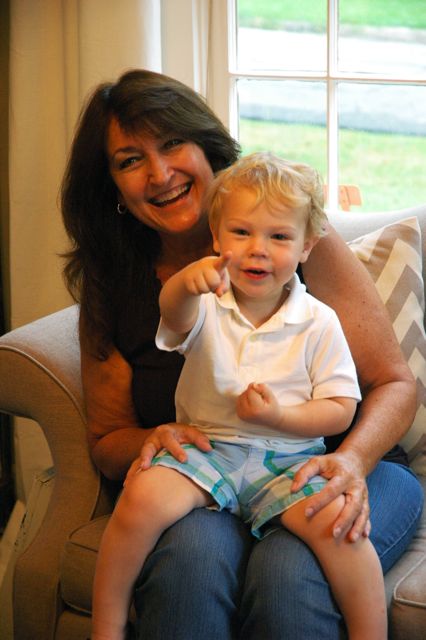 This fall, Susie led a 10-day Associate Level Training session at Camp in Bakersville. Continuing our series of testimonials, today's post features Shay--a "retired" elementary school teacher who taught for over 30 years in 3 different states. Enjoy this glimpse into her OG experience, which was profound on both personal and professional levels:
This fall, Susie led a 10-day Associate Level Training session at Camp in Bakersville. Continuing our series of testimonials, today's post features Shay--a "retired" elementary school teacher who taught for over 30 years in 3 different states. Enjoy this glimpse into her OG experience, which was profound on both personal and professional levels:
Camp Spring Creek: Tell us a little about yourself.
Shay: My joy in life are my two grown sons, a sweet daughter-in-law, and one precious grandson. I'm living in South Florida now, teaching pre-school.
CSC: Tell us about a critical turning point or moment of learning (an "ah-hah") that you experienced during your 10 days of Associate Level Training with Susie:
Shay: The critical turning point for me was at our first session when I realized I was in the company of some brilliant women who had come prepared for an upper-level very intensive study that I felt totally unprepared to handle. However, I've always had to deal with the fact that I felt intellectually inferior, so I just had to work harder and find a way to survive this training and try to be successful. I made a determined effort to absorb all the information, do the homework, and prepare for the quiz each day. However, after learning the characteristics of dyslexia I began to see myself on every page of our book. The red flags were flying and it was overwhelming! I hesitated to diagnose myself or make an excuse for not being able to keep-up but the evidence seemed crystal clear.
CSC: What did you learn or realize that was most surprising to you? Perhaps something you had never considered before...
Shay: I have been living with these painful characteristics for so long I consider them part of my identity. All the shameful patterns of hiding what you don't know or can't seem to understand what everyone else grasps with ease cannot be easily broken and exposing them would be risky plus humiliating. But I felt safe with this group of women and our instructor out at Camp. When I admitted my feelings, Susie wasn't surprised at all since she had already come to the same conclusion and was waiting on me. Everyone was very supportive and understanding. It was hard but rewarding to finally understand many of the difficulties I've experienced over the years and it gave me even more compassion for my students who struggle with these same problems.
CSC: How will you use your OG training?
Shay: I have been using some of the techniques of OG in my classroom and hope to give my students a head start to success for the future, so they can avoid some of the painful patterns that develop in an effort to cope in our educational system.
The Dyslexia Empowerment Plan by Ben Foss
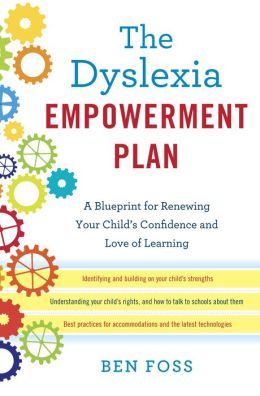 In The Dyslexia Empowerment Plan: A Blueprint for Renewing Your Child's Confidence and Love of Learning, Ben Foss goes beyond telling readers what dyslexia is and instead focuses on what you can do. According to the book jacket, "after years of battling with a school system that did not understand his dyslexia and the shame that accompanied it, renowned activist and entrepreneur Ben Foss is not only open about his dyslexia, he is proud of it. In The Dyslexia Empowerment Plan he shares his personal triumphs and failures so that you can learn from his experiences, and provides a three-step approach for success."
We highly recommend this book and if our vote isn't persuasive enough, check out this free excerpt in online print or audio format to experience these inspiring ideas for yourself. Meantime, we're going to try and get in touch with Ben for an interview. Fingers crossed...and stay tuned!
In The Dyslexia Empowerment Plan: A Blueprint for Renewing Your Child's Confidence and Love of Learning, Ben Foss goes beyond telling readers what dyslexia is and instead focuses on what you can do. According to the book jacket, "after years of battling with a school system that did not understand his dyslexia and the shame that accompanied it, renowned activist and entrepreneur Ben Foss is not only open about his dyslexia, he is proud of it. In The Dyslexia Empowerment Plan he shares his personal triumphs and failures so that you can learn from his experiences, and provides a three-step approach for success."
We highly recommend this book and if our vote isn't persuasive enough, check out this free excerpt in online print or audio format to experience these inspiring ideas for yourself. Meantime, we're going to try and get in touch with Ben for an interview. Fingers crossed...and stay tuned!
Interview: Janet George
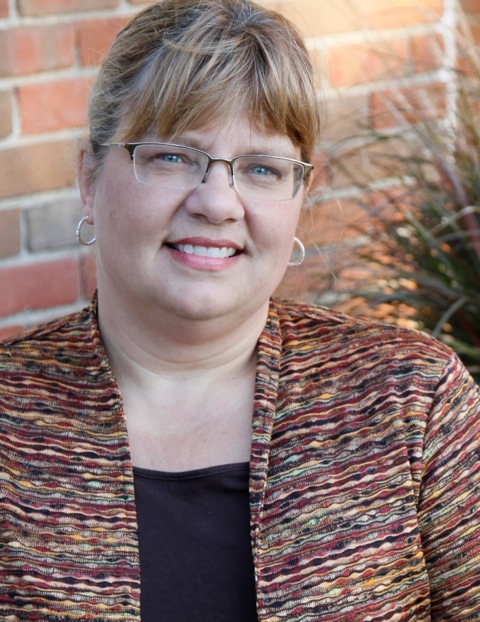 Janet George, M.S., M.ED., Fellow/AOGPE, is the Founder and Head of The Fortune Academy and the subject of today's interview in our "inspiring people" series. According to the school's website, “The school is designed to provide an environment that nurtures each child's development, builds upon his/her individual strengths, and offers remediation in areas of weakness…Fortune Academy is 1 of only 11 schools in the United States to have its Orton-Gillingham instruction program accredited by the Academy of Orton-Gillingham Practitioners and Educators.” The Fortune Academy opened its doors in 2002.
Camp Spring Creek: If you could offer one message to parents, potential employers, or members of society in general about life with a learning difference, what would that message be? What kind of shift in our thinking would be most helpful in bridging the gap or tearing down stereotypes?
Janet George, M.S., M.ED., Fellow/AOGPE, is the Founder and Head of The Fortune Academy and the subject of today's interview in our "inspiring people" series. According to the school's website, “The school is designed to provide an environment that nurtures each child's development, builds upon his/her individual strengths, and offers remediation in areas of weakness…Fortune Academy is 1 of only 11 schools in the United States to have its Orton-Gillingham instruction program accredited by the Academy of Orton-Gillingham Practitioners and Educators.” The Fortune Academy opened its doors in 2002.
Camp Spring Creek: If you could offer one message to parents, potential employers, or members of society in general about life with a learning difference, what would that message be? What kind of shift in our thinking would be most helpful in bridging the gap or tearing down stereotypes?
Janet George: My message would be that having a learning difference is a life-long journey that doesn't necessarily get easier, it just gets "different." Learning about your strengths helps you manage and work around those areas that can challenge you. All individuals, whether LD or not, gravitate to what they are interested in. Those with learning differences have incredible gifts that can elevate a business to a new level, can invent new devices to support the medical field, and can design and build beautiful structures for communities.
CSC: Can you tell us about a particularly inspiring or moving moment you witnessed with a child, teacher, or parent in the LD community?
JG: My "moments" happen daily when I have the opportunity to sit with a child one-on-one and have them read to me. Their sense of pride and wanting to show me how much they are improving, well...their smiles and hugs just warm my heart and feed my soul!
CSC: Each Head of School brings his/her own personal skill set and passions to a job. What would you say you bring above and beyond the mission of The Fortune Academy?
JG: My passion is to make all of our students feel special, safe, empowered, and instill in them the confidence that they CAN learn. Additionally and as importantly, helping children find their strengths--what they are good at and are interested in--and then nurturing those strengths; that is incredibly important. Greeting them every single morning as they exit their cars, welcoming them with a smile (and sometimes a hug) and letting them know how great it is that THEY are at school--all of those things are important.
CSC: The Fortune Academy offers a dynamic education for grades 1-12, but also gets involved with community outreach, trainings, and maintains a resource center. Can you tell us more about this?
JG: We have a partnership with a local college, located less than 1 mile from our campus, that our 11th and 12th graders can attend courses for duel credit. This allows them to take classes if they are interested in a vocational trade OR if they are working towards an honors diplomas. All teacher trainings happen every Friday, 1:30-2:30. All faculty members are required to participate. Our trainings include research, language instruction, assessments (lead by our school psych, who is also a Fellow and PhD), legal implications (provided by our Board Member who is a Sp.Ed. Attorney)., etc. Our community resource center provides lending materials and offers guidance for parents needing assistance. We also provide free outreach programs.
In Her Own Words: Valerie on Associate Level OG Training
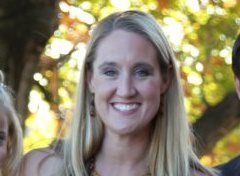 This fall, Susie led a 10-day Associate Level Training session at Camp in Bakersville. Continuing our series of testimonials, today's post features Valerie--a mother, homeschool teacher, and OG tutor! Enjoy!
Camp Spring Creek: Tell us a little about yourself.
This fall, Susie led a 10-day Associate Level Training session at Camp in Bakersville. Continuing our series of testimonials, today's post features Valerie--a mother, homeschool teacher, and OG tutor! Enjoy!
Camp Spring Creek: Tell us a little about yourself.
Valerie: I am a former teacher turned homeschool mom. I homeschool my twin 7 year old daughters while my 4th grade son attends public school. My twins both have learning issues that brought me to Susie for training. One twin, Kaitlyn, is dyslexic, while her sister, Brooke, is deaf and uses Cochlear Implants. Both have language difficulties in speech, sentence structure, grammar, and reading.
CSC: Tell us about a critical turning point or moment of learning (an "ah-hah") that you experienced during your 10 days of Associate Level Training with Susie:
Valerie: There were many moments during training that made me think, "That makes so much sense, why have I not been doing it!" One of those moments was when studying the brain and the need for visual, auditory and kinesthetic learning...so easy for a teacher to do--but I just didn't know that I should do it.
CSC: Describe your experience at the Camp in Bakersville, working hours and hours every day, somewhat in seclusion...as you immersed yourself in the world of OG:
Valerie: We worked very hard during the 10 days at Camp. Most days we worked from 8 am until 5 pm, a few nights until 7-8pm, and then the infamous night of 1:30am when most of us had to retake a quiz. Susie worked us hard, but was always supportive and encouraging. She often said that if we were not learning then she was not teaching and would teach it a different way. I really think being at camp, completely submerged in OG, was a true benefit. There was always another trainee to ask questions, study with, or help with homework. I learned so much from my fellow trainees.
CSC: What did you learn or realize that was most surprising to you? Perhaps something you had never considered before...
Valerie: I learned that I can use Orton Gillingham with all kids, not just those with dyslexia. I learned the great reasons behind teaching cursive (which I thought was old-school and something unnecessary to teach in our current technological age). I learned that cursive is quicker, more fluid, and helps students get their ideas onto paper much more easily. At home, I am teaching my 7 year olds cursive and require my 9 year old son to do all his homework in cursive.
CSC: How will you use your OG training?
Valerie: I am currently tutoring my twins 5 days a week with Orton Gillingham. I began tutoring my first student on October 30th. I plan to begin my practicum in January 2014.
In Her Own Words: Jennifer on Associate Level OG Training
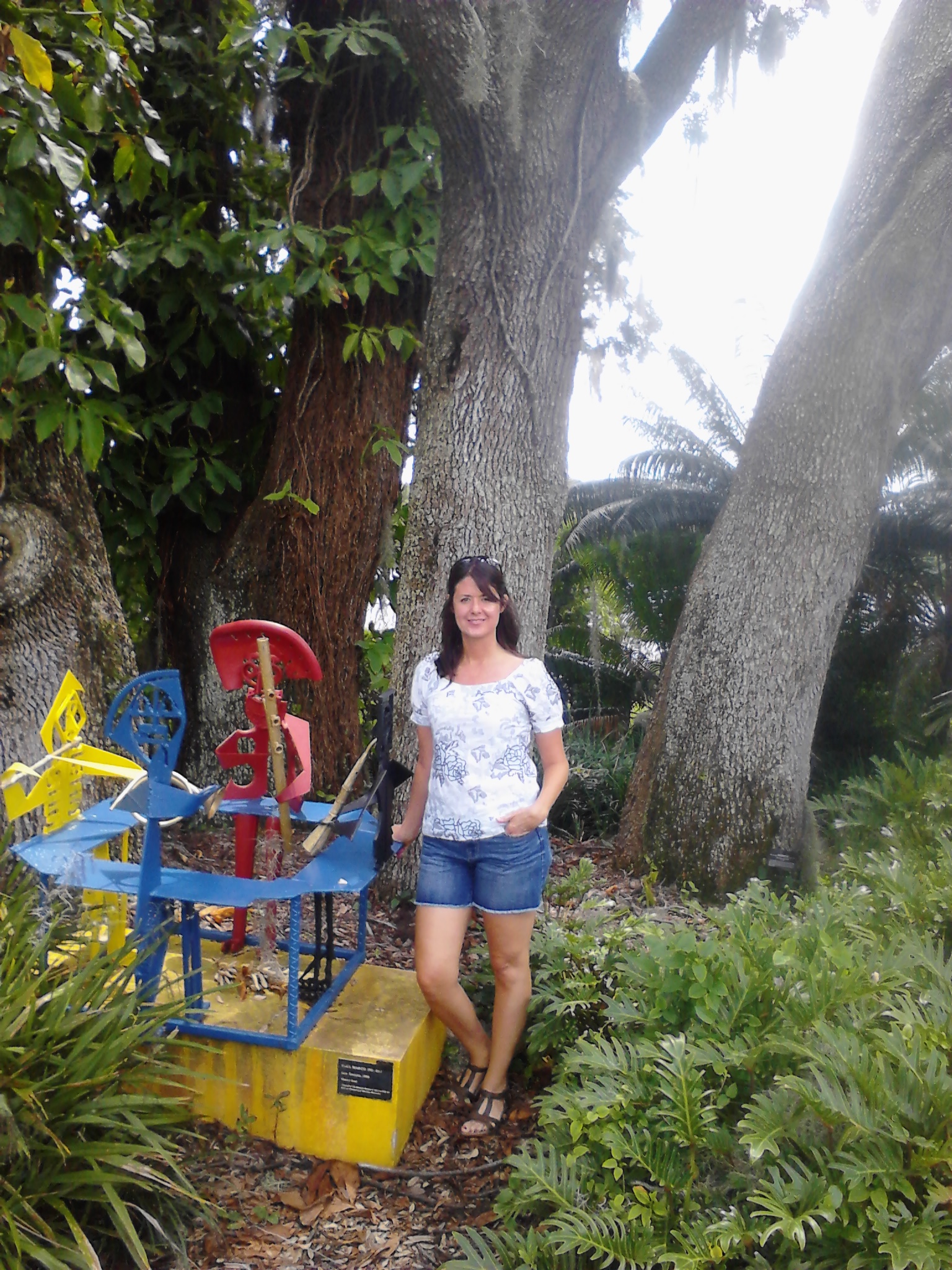 This fall, Susie led a 10-day Associate Level Training session out at the Camp in Bakersville. As always, our participants each came from unique backgrounds. Today's post features a testimonial from Jennifer, an education specialist, impassioned teacher, and advocate. Enjoy!
Camp Spring Creek: Tell us a little about yourself.
This fall, Susie led a 10-day Associate Level Training session out at the Camp in Bakersville. As always, our participants each came from unique backgrounds. Today's post features a testimonial from Jennifer, an education specialist, impassioned teacher, and advocate. Enjoy!
Camp Spring Creek: Tell us a little about yourself.
Jennifer: I am an Exceptional Education teacher with an undergrad in Communication Disorders. I have been working with children with various disabilities and processing disorders for the last 8 years. I consider myself a brain-based teacher with an interest in neuroscience and sensory-motor development. Most of the children I work with have a disability that can’t be “seen.” I teach with their brain in mind while helping them understand how they best learn. My intention is to promote awareness on multi-modal teaching techniques, their efficacy, and the importance of teaching to develop a “unified” brain and honor the whole child.
CSC: Tell us about a critical turning point or moment of learning (an "ah-hah") that you experienced during your 10 days of Associate Level Training with Susie:
Jennifer: Despite, previous exposure and practice with Orton-Gillingham derivatives, it was during this training that I realized how much more efficient and effective my approach could be! My “ah-hah” moment was visualizing how the 9 OG principles were brought to life in the new lesson format. The lesson plan is static but reflects a highly dynamic, multi-dimensional process occurring within the child!
CSC: Describe your experience of the Camp in Bakersville, working hours and hours every day, somewhat in seclusion...as you immersed yourself in the world of OG:
Jennifer: The 10-day training at Camp was challenging. But then, I also believe that anything worth achieving is never simply handed to you. Being away from home, operating on less sleep with exams at 8 am was not easy! I would prepare anyone by telling them that it is truly intense (as advertised). Reflecting on it now, I wouldn’t have changed a thing. Being surrounded and immersed in the material amplified the importance of what and why I was studying OG. This hyper-concentration allowed me to focus deeply on the material and internalize it faster than if I had taken days and weeks in between training. Plus, I met some amazing women! It was cozy and authentic—forging meaningful bonds. I will never forget them or my time at Camp!
CSC: What did you learn or realize that was most surprising to you? Perhaps something you had never considered before...
Jennifer: My surprise was realizing how poorly I had learned cursive and, worse, how poorly I was prepared to teach it!
CSC: How will you use your OG training?
Jennifer: In all my years of schooling, I had never heard of Orton-Gillingham. Moving to NC was a blessing for my career as I was exposed and awakened to this researched-based philosophy. I feel that OG has literally changed the way my brain functions and improved areas that were underdeveloped. I have seen the majority of my students blossom and become empowered, confident learners as a result of it. Susie’s teaching and mentoring is providing me with an opportunity to further develop myself as an educator. As teachers/specialists we assume an important oath. We should demand excellence from ourselves because our responsibility to our students demands it. I am grateful that Susie demands excellence from herself and her trainees. I will continue my Orton-Gillingham training as I believe it provides a superior approach to helping our kids learn how to master language and become confident, lifelong learners.
In Their Own Words: Adeline's Family
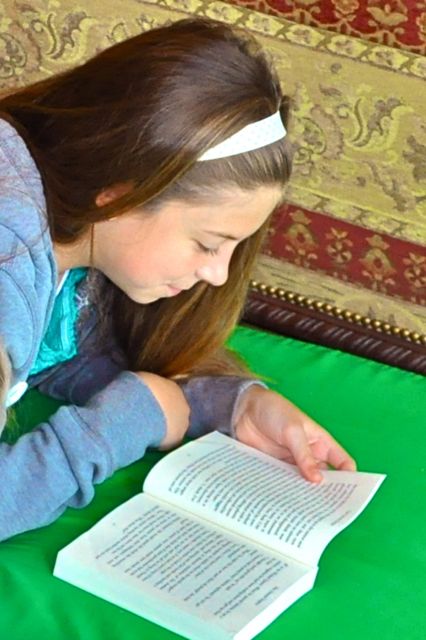 This summer, camper Adeline participated in our Orton-Gillingham/Camp Counselor pilot program designed to benefit Mitchell County children. For four weeks, Adeline spent 2 hours at camp each day: one hour with her OG tutor and another hour participating in camp activities.
"One day Adeline came home and for entertainment she actually enjoyed making the flashcards," said her mother Tonya. "She made me a whole set and then she asked me, 'Mom, would you buy me some more 3x5 cards?' She'd never done anything like that before. We really appreciate what Steve and Susie and Camp Spring Creek did for us."
This summer, camper Adeline participated in our Orton-Gillingham/Camp Counselor pilot program designed to benefit Mitchell County children. For four weeks, Adeline spent 2 hours at camp each day: one hour with her OG tutor and another hour participating in camp activities.
"One day Adeline came home and for entertainment she actually enjoyed making the flashcards," said her mother Tonya. "She made me a whole set and then she asked me, 'Mom, would you buy me some more 3x5 cards?' She'd never done anything like that before. We really appreciate what Steve and Susie and Camp Spring Creek did for us."
Adeline is now in 7th grade at a local school. Her parents have lived here for over twenty years and love the Western North Carolina community. "It's refreshing here. I cannot imagine raising our girls anywhere else in the world," said Tonya. "We appreciate having a yard and such a beautiful view and land for animals and a garden. We have fruit trees, fresh asparagus, fresh flowers...We love it here."


